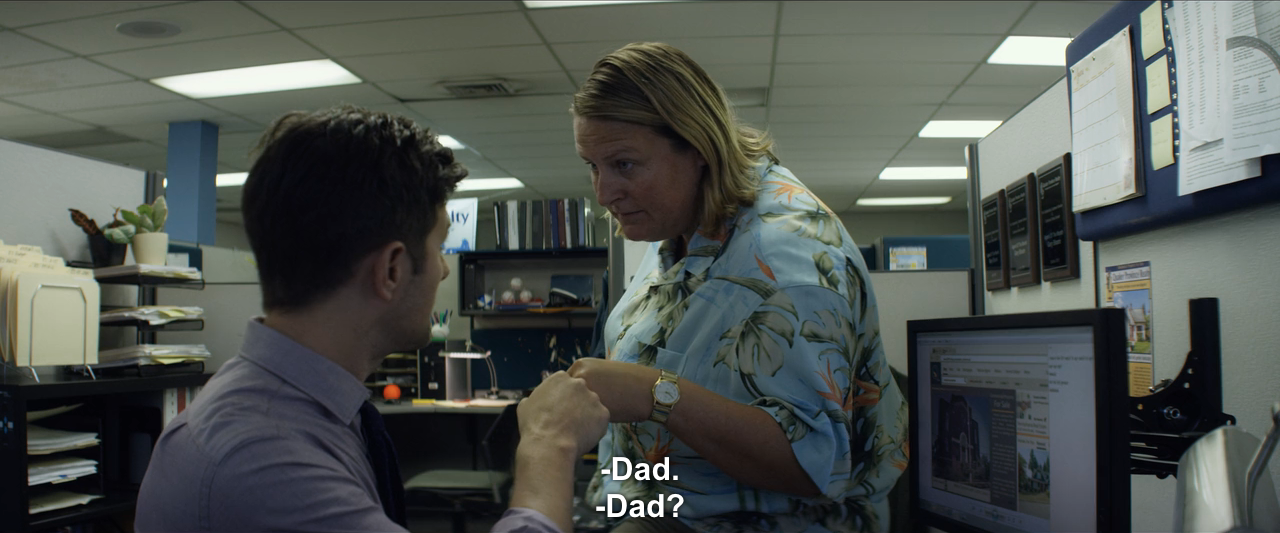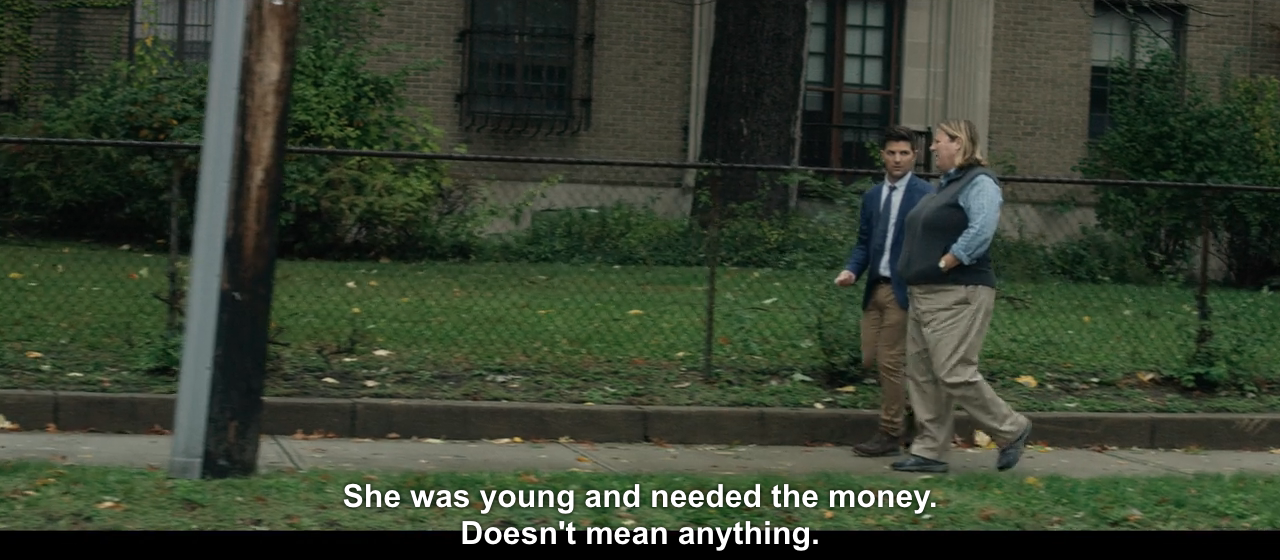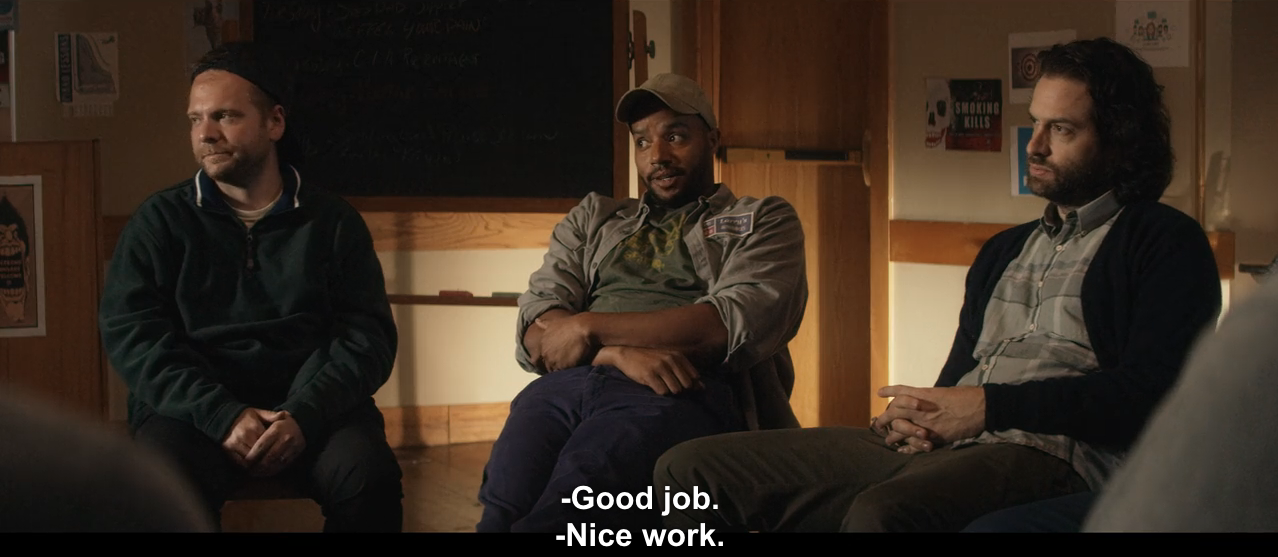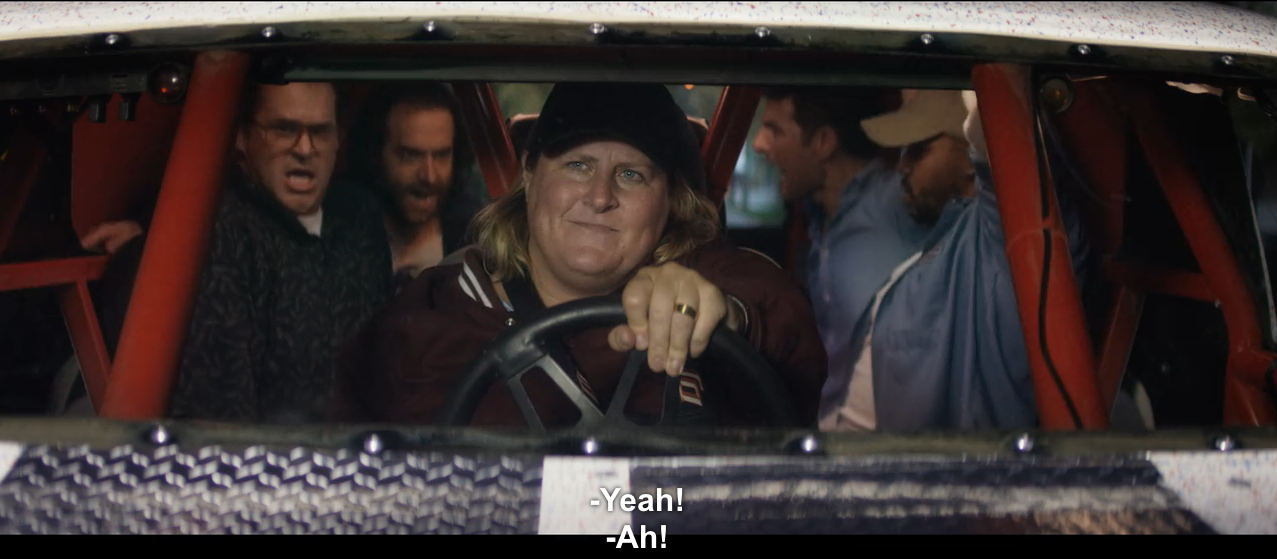There are a lot of things I appreciate about Little Evil, a Netflix original horror comedy. I like how it flips the trope of the demon-possessed child on its head, with the lead character doing his best to bond with the afflicted child. The story follows bungling, good-hearted Gary as he tries to be a good a stepdad to Lucas, his five year-old son. The two eventually form a parent-child bond, but not before Gary finds out that Lucas is the Antichrist and has already set a plan in motion to kill him. I won’t spoil the ending, but it’s a wild ride from start to finish.
In between the dad jokes and parenting attempts gone hilariously wrong, there’s another detail that caught my eye. Gary’s best friend Al, played by Bridget Everett, is one of Gary’s co-workers and a fellow stepdad. They are also visibly gender nonconforming. As a transmasculine person myself, this piqued my interest.
The movie does not acknowledge the fact that Al is gender nonconforming nor does it reveal which pronouns to use. I am using they/them for Al in this review because that’s what I default to when I don’t know somebody’s pronouns. It’s a good life practice and also something a lot of people do without even realizing.
In Al’s first scene, they commiserate with Gary about the trials and tribulations of being a stepdad. “Yeah, you’re a stepdad now, man. Sucks, bro. Welcome to the club,” Al says casually. Gary’s reaction is the closest we get to an acknowledgement of Al’s gender identity; he responds with “Oh, you’re a step—” and Al cuts him off before he can finish his sentence, declaring that they are a dad. Gary repeats “Dad?” with slight confusion, and Al confirms with a “Yeah, man.” Gary’s ultimate reaction is “Right.” And then they continue their conversation.

When Al learns that Gary is a stepdad, they fistbump in solidarity.
I love the nonchalance with which Gary receives Al’s comments about being a stepdad. Of course, some curiosity is to beexpected but Gary doesn’t contradict Al or ask invasive questions. Instead, Gary repeats what Al said, as though he were checking that he heard correctly.
There are a thousand ways this interaction could have gone awry, and a thousand more inappropriate and upsetting responses that trans people endure on a day-to-day basis, but in the end, this scene shows how to react when you find out that someone is transgender or expresses their gender differently to what you might expect. Essentially, Gary gets confirmation that Al is indeed a stepdad, shrugs, and moves on.
While it’s nice that everyone else Al meets interacts with them respectfully and don’t question or comment upon their gender expression, I would have liked to know Al’s gender and pronouns. I can understand any hesitation to specify Al’s gender lest it detract from the story. I can see challenges in determining the amount of emphasis to put on a trans character’s gender. Maybe it was a conscious decision to leave Al’s gender up to interpretation or to suggest that gender is fluid. Perhaps the filmmakers didn’t intend to not use pronouns and that’s just the way the script worked out. Either way, I don’t think a more explicit acknowledgement of Al’s gender nonconformity would have been amiss, but if the filmmakers never intended to address that directly, this scene in their office is the next best thing.

The movie’s sexual humour doesn’t cancel out its positive attitude towards sex work.
Al frequently uses terms like “dude,” “bro,” and “man” to refer to their friends. Al leads the banter and other stepdads chuckle when Al suggests that Gary’s wife Samantha gives good blowjobs. In another scene, Al speculates that a property Gary is selling may be converted into a sex dungeon, and they hump the divider in their office. Even if it is a little overdone, it’s clear that Al is “one of the guys.”
“The guys” in this case are the men in a therapy group for stepdads that Gary and Al attend. It’s refreshing to see a circle of men supporting each other and talking about their feelings. When Gary is reluctant to share his own struggles, one of the attendees declares: “This is a safe space, bro.” It is rare to see men in cinema in moments of vulnerability or struggling with something without the men crying or having a fit of anger. This scene doesn’t advance the plot, but it shows healthy solidarity between men without feeding toxic masculinity.

The stepdads in the therapy group share their frustrations and encourage one another.
Not once did I ever feel that Al was a token or was supposed to be “trans representation.” Al is just Al, a gender nonconforming character whose storyline and characterization don’t revolve around this single facet of identity. Al’s role in the story is driven by their personality and relationship to Gary as a chatty, funny, and a loyal friend.
But as hilarious as Everett is, I would prefer to have seen a transmasculine actor in the role. Calls for transgender characters to be played by transgender actors are not new. They’re here alongside the conversation about casting white actors as characters of colour and the discussion about able-bodied actors playing disabled characters. Matching characters with actors of the same gender, race, and with the same disabilities is something a lot of underrepresented people would like to see. I hope that future films build on Little Evil’s take on a gender nonconforming character and take it one step further by casting the right actor.

Al leads the charge into the final scene.
One of the questions that Little Evil asks is what it takes to be a good stepdad. At one point, Al wins the “Dad ball” — a baseball with the words “best dad ever” on it, which not only validates the work that they have put into being a good stepdad, it also shows that good stepdads don’t have to be cisgender either.